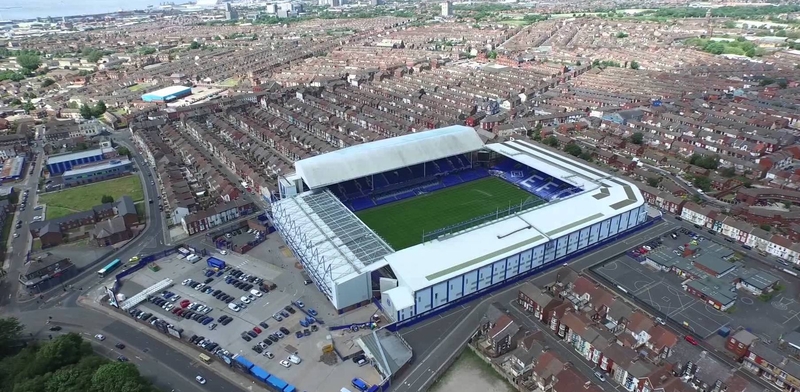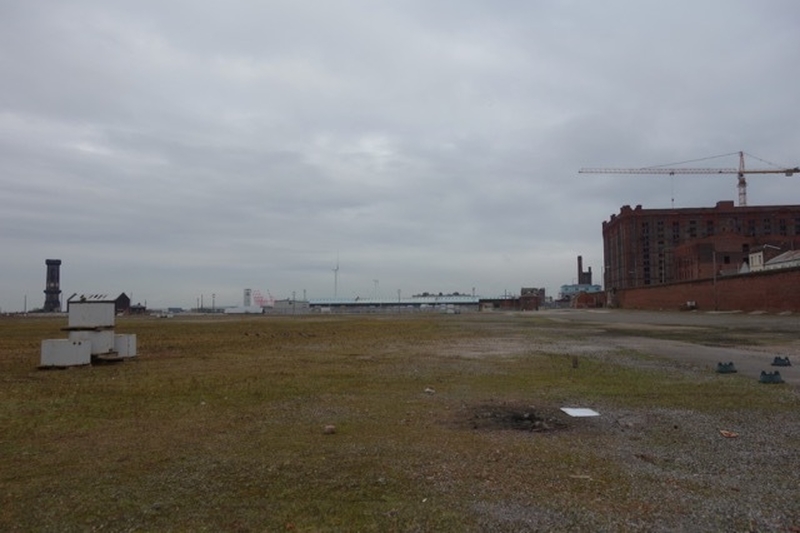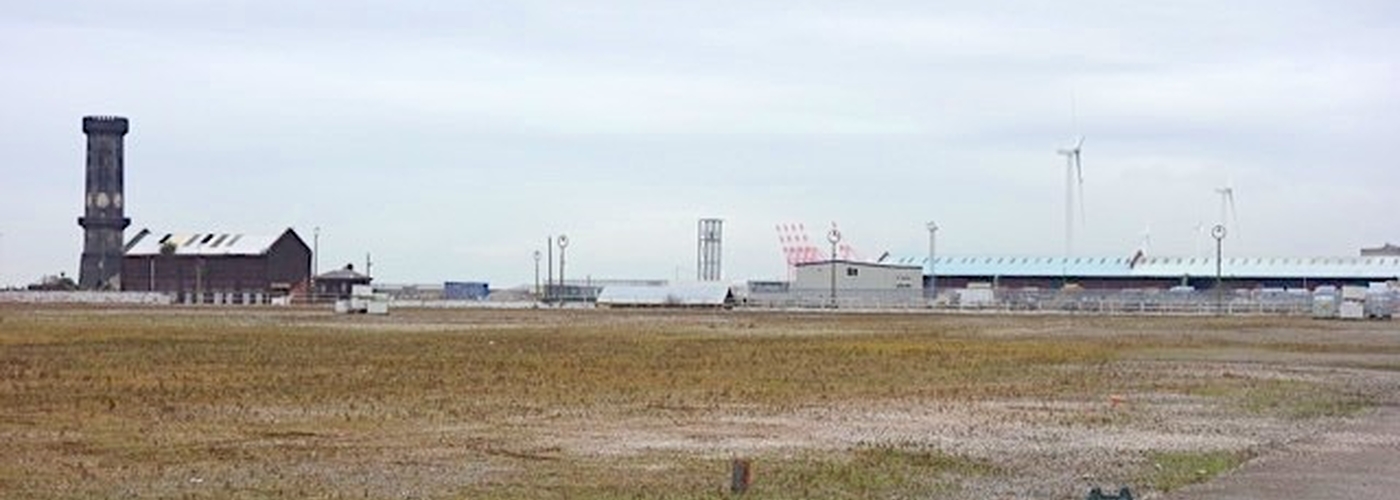Risk passed on to council tax payers to enable Toffees' new stadium
THERE are risks to Liverpool City Council with a deal to act as guarantor for a new £300m Everton stadium on Bramley Moore Dock, a report by officers has revealed.
For months there have been behind the scenes talks involving the council, Mayor Joe Anderson (a devoted EFC fan), and the club, to create a world class stadium as a much-needed new home for the Blues for the next century.
But being Liverpool, instead of a simple case of club needs new stadium/club builds new stadium, there has to be what appears to be a convoluted process to enable EFC to reach its goal.
A potential foul thrown into the mix, such as a stadium on the docks, could even jeopardise the city’s status as a Unesco World Heritage Site. But that is a discussion for another day.
The EFC stadium frenzy started earlier this week when Mayor Anderson dropped hints on Twitter about cancelling appointments on Thursday.
It was a signal that a big announcement was bubbling about a long awaited decision on a new stadium for the Toffees.
The first question I would ask is, 'Why is the city council taking any risk when EFC has a billionaire owner?'
In the event, instead of computer generated images of a riverside stadium, and an expected date for its opening, the announcement was based on a lengthy report being laid before next Friday’s meeting of the mayor’s cabinet.
Its gist is a proposed funding mechanism that will enable EFC to seek the holy grail that is its new stadium.
Despite being in the upper reaches of the British Premiership, the world’s best known football league, the club needs a bit of a financial leg up to finally break free from ancient Goodison Park.
Easy. Just throw in a Special Purpose Vehicle Company, or an SPV, and it’s as good as done.
An SPV is nothing to do with the world of automobiles, it’s a funding formula in which the city council acts as a guarantor for the next 40 years, just in the same way a money lender will often demand somebody to back a loan.
If the loan is not paid, the lender can call in the debt from the guarantor, which in EFC’s case would be the council tax payers of Liverpool.
Nevertheless, the 19-page report presented to the cabinet makes it clear that the council will actually earn money from the deal.
But one thing nobody can guarantee is the fortunes of any football club or business over four decades to come. In a worst case scenario, what happens if there is a collapse and, at some stage in a lower division, Everton play in a less-than half-full 50,000 seater stadium?
Top brains from organisations such as KPMG and Grant Thornton are fortunately on hand to give advice to the council to make sure things are organised to prevent such a calamity.

The report gives an aspirational account of what a new home for Everton will mean, a new landmark “for the city’s spectacular north Liverpool waterfront and a powerful statement of intent for the club and the city of Liverpool that will resonate globally”.
Terms have been agreed between Peel, the owners of the dockland, and EFC for the club’s acquisition of the site it needs at Bramley Moore Dock.
A proposed deal between EFC and the council then envisages Peel granting a 200-year head-lease of the land to the yet-to-be-found funder of the new stadium, ie the moneylender
The funder will then have the benefit of a lease to a new company to be created by the city council, called a Special Purpose Vehicle company. The council-owned SPV will then sub-lease the stadium to EFC for 40 years. The club will become tenant of the stadium, paying a rent.
The rent paid by EFC to the council-owned SPV will be greater than the rent paid by the SPV to the funder. This means the council will retain the difference between the rents for its part in the transaction. In other words it will make money.
At the end of 40 years, EFC will have an option to acquire the leasehold interest in the stadium.
EFC will fully finance the new stadium, using the cash loaned by the moneylender. The city council’s role will be to guarantee the repayments made by EFC.
The city council, says the report, will receive a significant regular annual fee and a security package to mitigate against risk should EFC default on its repayments.
“This arrangement involves no financial outlay by the council,” says the report, adding that structuring the proposed deal in this way will enable EFC to raise the necessary funding to build its new stadium.
The report adds: “It is important to state that there is no financial outlay by LCC to deliver on this deal, unless EFC were to default on their rental repayments, in which case, to mitigate against risk of this, there is a security package in place which is in line with third party assessments as three times the level of rental payments.”
Initial high-level studies suggest the full development cost of a new 50,000 seater stadium would be in excess of £300 million. But the report adds: “There are some risks to LCC and a clear rationale for supporting EFC.”
“The risk to the council lies in the judgement of EFC’s ability to cover their rental commitment and the security fee and to mitigate against this risk, the council will receive a substantial security package from EFC to ensure that the rent and security fee will be covered in this eventuality,” says the report.
One big question will be why Everton needs to follow what seems to be a complicated route to reach its new stadium goal, particularly if there is, potentially, a possible financial risk to the council.
Technically that could see council tax payers (many, it has to be said, with no footballing allegiance whatsoever) picking up the bill for the Blues.

Essentially, Everton FC will find it much easier to find a funder for its new stadium if it has the city council act as guarantor.
Like most people, the Lib Dem leader on the city council, Cllr Richard Kemp, has welcomed the news, but adds: "The first question I would ask is 'why is the city council taking any risk when EFC has a billionaire owner?'
“We will want reassurance on finance where we cannot see the need for a guarantee from the council.”
There are huge benefits for a new stadium, including its role in transforming the derelict docklands. Owners Peel did not envisage any activity there until at least the 2030s in any case.
With the Tenstreets project and other initiatives, such as the Tobacco Warehouse development, the EFC scheme will be a major catalyst for breathing new life into the docklands. The possibility of the Commonwealth Games is an added bonus.
If the mayor’s cabinet give the green (or should that be blue?) light to the deal next Friday, a planning application can be expected before the end of this year.















